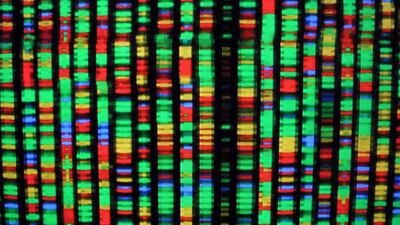Scientists in the US reached a new milestone by successfully altering DNA in defective embryos so they were no longer programmed to develop heart failure.
It is the first time the powerful gene-editing tool Crispr-Cas9 has been used to fix a mutation responsible for a common inherited disease.
The highly controversial technique is still at an early experimental stage and there is no question of any attempt being made to create babies with the genetic modification.
Last year, Britain became the first country officially to sanction mitochondrial replacement therapy (MRT), seen by some as opening the door to "designer babies".
Other countries, such as America, have much stricter rules around this topic - including a ban on any work funded by taxpayers that would destroy human embryos. Additionally,
Congress has banned the US Food and Drug Administration (FDA) from even considering the possibility of human clinical trials involving embryos with edited inherited genes.
New research reported in the journal Nature looks at modifying the nuclear DNA at the heart of the cell that influences personal characteristics such as height, facial appearance, eye colour and intelligence.
Leaked information has already led to widespread speculation about the study. The published paper explains how Crispr-Cas9 was used to repair human embryos blighted by a single copy of a mutant gene, MYBPC3, that causes hypertrophic cardiomyopathy, a type of heart failure.
Using standard IVF techniques, the scientists first fertilised donor eggs with sperm containing the defective gene. At the time of fertilisation, they applied the gene-editing tool that acts like a pair of precisely targeted genetic scissors.
Once the defective elements of the gene had been snipped away, the embryo's own cellular repair systems replaced them with healthy versions.
Nature stepped in at this point, by using the egg donor's properly functioning MYBPC3 gene as a template on which to base the repair.
Forty two out of 58 embryos (72.4%) were correctly fixed so that they no longer carried the heart failure mutation, which normally has a 50% chance of being passed on.
None of the embryos were permitted to develop beyond the blastocyst stage five days after conception. Had they produced offspring, those with the repair would no longer be at risk of developing hypertrophic cardiomyopathy or passing the defective gene onto to their own children.
Dr Mitalipov said: "Every generation on would carry this repair because we've removed the disease-causing gene variant from that family's lineage.
"By using this technique, it's possible to reduce the burden of this heritable disease on the family and eventually the human population."
Hypertrophic cardiomyopathy affects around one in 500 people and can result in sudden death.
It occurs when the walls of the heart become thickened and stiff, making it more difficult for the organ to pump blood around the body.
Before clinical trials could be considered, the technique would have to be made more efficient and further checks would have to be made to ensure its safety, he said.
"I'm quite sure there are tools we could use to improve the repair to 90 - 100% efficiency and then we will be ready to move to clinical trials," said Dr Mitalipov. He was unable to say how long this might take.
The scientists found no evidence of "off-target" changes to DNA in the embryos caused by the gene-editing scissors cutting the wrong areas.
Nor was there any evidence of "mosaicism" which could cause the embryos to end up with a mixture of repaired and defective cells.
Dr David King, director of the Human Genetics Alert, which opposes all tampering with the human genome, said: "If irresponsible scientists are not stopped, the world may soon be presented with a fait accompli of the first GM baby.
"We call on governments and international organisations to wake up and pass an immediate global ban on creating cloned or GM babies, before it is too late."

